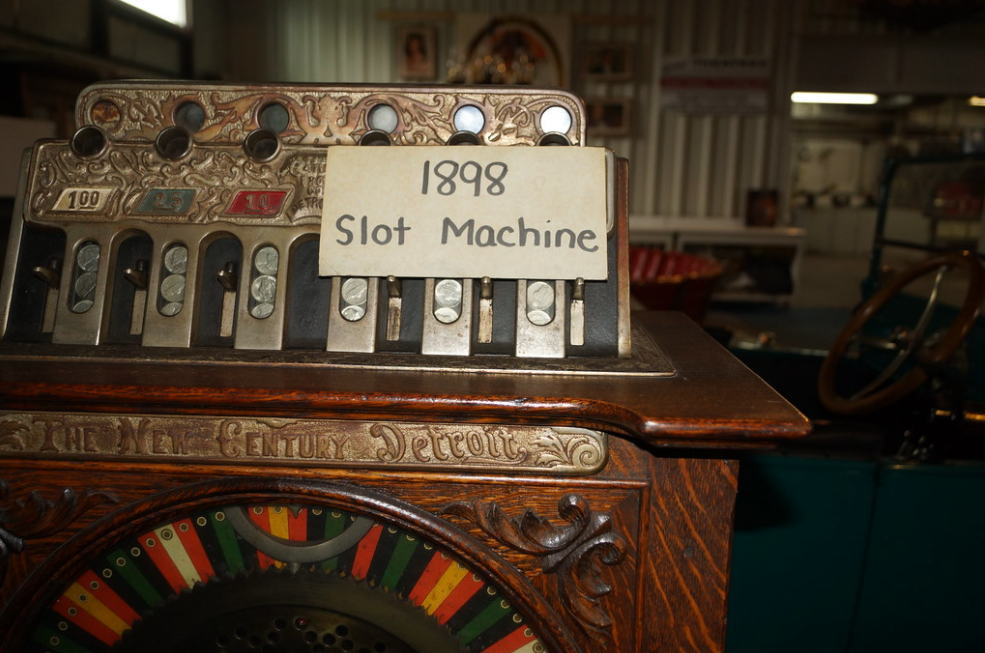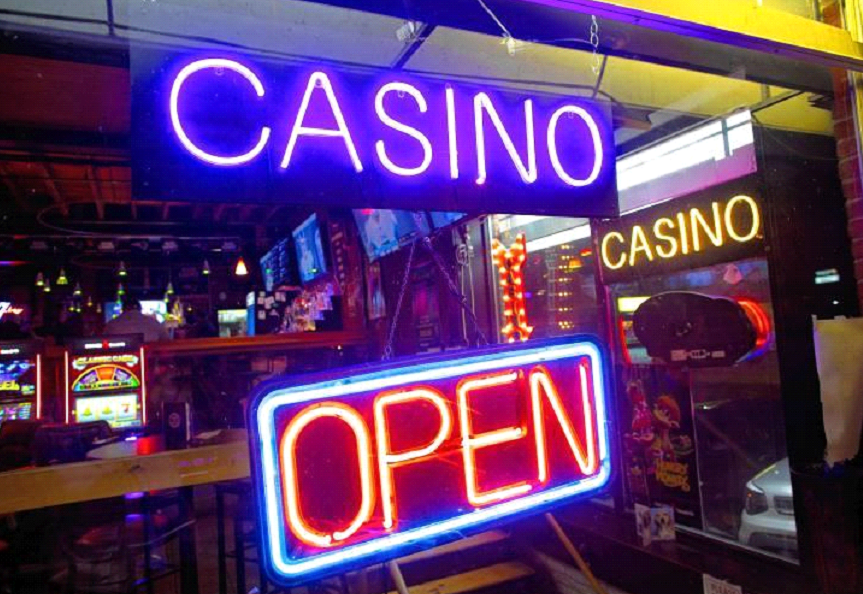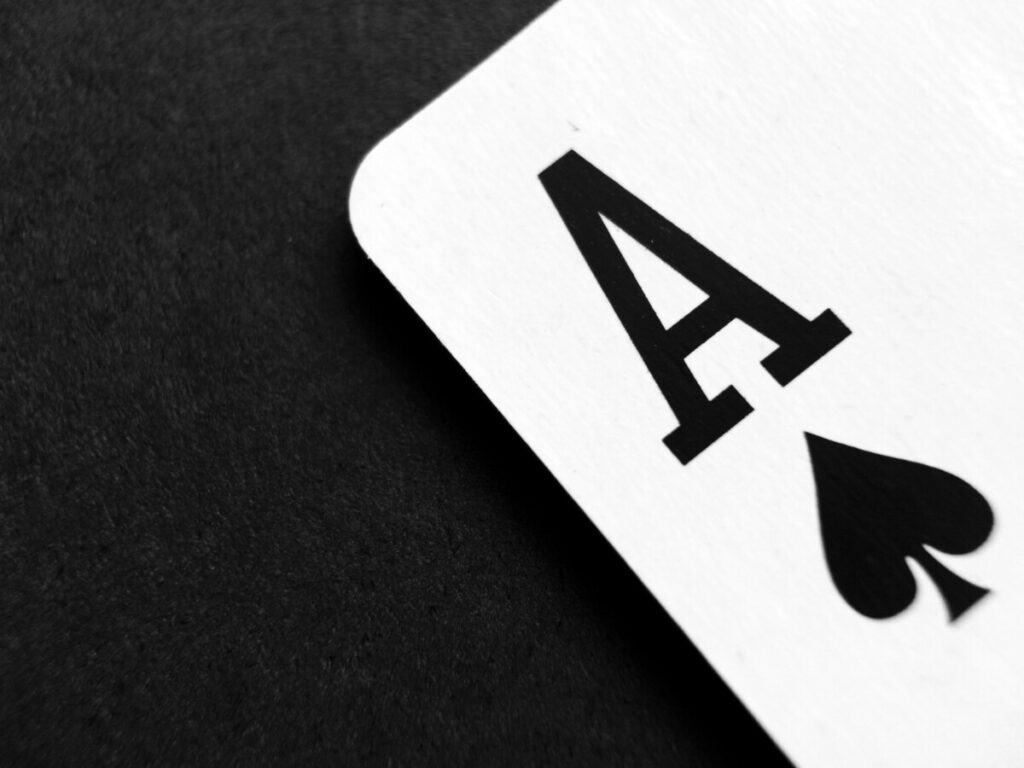If you’ve played in online casinos in the last twenty years, chances are you would have noticed some repeating patterns. Chief among these is the reliance that these casinos have on slot games, a long-time favourite in the much older physical casino market. Yet, in the physical market, these devices don’t quite have the selection and reliance of their online counterparts. So, what causes this, and why are slots likely to act as the frontline of digital casino games going forward?
A Simple Ruleset
Though most gambling games are simple once you get to know them, many can appear impenetrable from outside. This can be seen with many games, Craps, for example, is a breeze after a few games, but walking by a table can leave players confounded. Slots, on the other hand, are instantly understandable no matter your prior experience.
You sit down, put in a token, spin the reels, and aim to line up the symbols. As long as your brain can fathom the idea of matching patterns, which it naturally excels at, you’ll be ready to go. This is just as true for online opportunities as it is offline, with the idea of creating the basis of putting slots in the prime position.
The Importance of Flexibility and Choice
Most casino games, due to their strict rulesets, are limited in what sort of effect that themes and different designs can offer. Sure, you could put a theme on a poker night, and this can be fun, but the theme ultimately won’t change the nature of the game itself. Slots are different, in that their broad possible flexibility can be much better reflected in the games.

“Just Some Beach” (CC BY 2.0) by tdlucas5000
If a designer chose a tropical beach theme, for example, they could not just modify all the graphics around this theme, but could also create bonus games centred on the idea. Coconuts could drop through the reels, beach parties could add wild symbols, and big wins could be hidden behind the discovery of the washed-up treasure. The combination is unusually strong for slots, and with the only limit being imagination, it’s no surprise that sheer choice is an enormous driver of slot player-bases.
Mobile Implementation
Mobiles have completely reshaped the way we manage digital entertainment, with online casinos being a key recipient of their generous potential. The convenience factor alone serves to drive many players to the mobile experience, but more than that, the accidentally strong fit of casino games to mobiles has helped significantly.
While other games suffer from the smaller screens and touch-controls of mobile devices, the relative simplicity of mobile input and display make them a rare match. Extending out further than just directly play, players can click here to learn more about how to get a new mobile casino offer in the UK. Including free spins, deposit matches, and more, mobiles take what was already a strong pairing on PC and laptop and switch it over to a much more streamlined format.

“1898 Slot Machine” (CC BY 2.0) by Crown Star Images
Celebrating their 25th birthday in 2021, online casinos have come a long way in a few short decades. Nowhere is this better illustrated than with slots, which rose from simply included titles to the biggest players on the main stage. It might be easy to overlook for dedicated table gamers, but make no mistake; slots are the backbones keeping many online casinos together. Whatever comes next, slots will be there in the spotlight, of that we can be certain.
Online casinos have been a part of the industry for enough time now for benchmarks to have been made and for established customers to know what they like. Newer customers may not yet know what to look for, but those who have some experience will be able to tell if a website is suitable for them instantly. But what is the most important aspect of an online casino site?

Source: Pixabay
The Game Selection
Ultimately, online casino users are there to play something. As CasinoWings.com shows, the game selection is important to the marketing of the site itself. Some provide quantity and others quality. Some sites focus on their delivery of hundreds of slot games based on a wide range of themes and with many different reels.
Other sites understand the pull of live casino options – such as live poker, roulette, and blackjack – so focus on promoting these games. Indeed, some players may just want to engage with the live dealer elements. Other sites link to their sportsbook elements and most have some kind of welcome bonus that ties into their star product offering.
The Payment Methods
Payment methods are increasingly becoming a significant factor in where people choose to engage online. This doesn’t just reflect the online casino industry, but for retail and wider entertainment. A multitude of options shows a commitment to the future of modern finance. People may have moved away from PayPal and towards an e-wallet.
Others may have a digital-only bank, while some may want to even pay with cryptocurrency. The majority will pay by the same means as always but having multiple options can show that the site is committed to providing the best possible experience for its user base.

Source: Pixabay
The Look of the Site
Some people are traditionalists. What we see with our eyes is important and influences our consumer actions. The branding of an online casino site can be the differential factor between gaining a customer and losing one to a rival. Indeed, according to MarketingWeek.com, the brand is one of the most important aspects of actually attracting customers. But there is no hard and fast rule about branding a casino site.
Some are sleek, sophisticated, and modern. Others are fun and playful. The casino experience ranges from the two aesthetics, so most sites choose something on the spectrum of serious to light-hearted. This influences the customers who might be inclined to click through and can complement some of the games on offer.
The Website Itself
Finally, some people may just choose the site they feel offers the best user experience, as the Adobe.com blog reinforces through their suggestion that the homepage shouldn’t be the sole focus for designers. We’re used to clicking on hundreds of websites per week and know which ones we instinctively return to. The best sites are those which have a simple layout, allow easy digestion of information, and can be navigated easily.
Casino sites should initially showcase their welcome offers and then immediately allow customers to find a variety of games. If customers have to search for something without it being readily presented, then they may simply choose another site.
Every element of the online casino experience is important. Ultimately, it comes down to the customer. Some choose based on the games, others on payment choice, while some just pick the website they like the look and feel of the most.

The UK Betting and Gaming Council (BGC)
In late February, the BGC called for reopening betting shops and Casino’s once the UK began to exit the current nationwide lockdown.
More than 44,000 UK residents are employed through Casino’s and betting shops, giving the council a favourable argument to reopen with other businesses. The BGC can only assist the post-lockdown economic recovery if they can reopen as the other sectors will.
The body states that betting retailers should reopen in unison with non-essential retailers, whilst casinos should start-up alongside restaurants, pubs, and clubs within the hospitality sector.
“As the vaccine rollout continues and the country begins to emerge from lockdown, it is important that businesses can plan effectively for reopening,” said Michael Dugher, Chief Executive of the Betting and Gaming Council.
“Betting shops must be allowed to reopen alongside other non-essential retail. Last summer, when most betting shops were able to open, they showed that they have the best0in-class anti-COVID measures compared to any other part of the high street to protect customers and staff. Ministers must allow them to play their role in stimulating the high street and other non-essential retailers.
“Likewise, casinos are eager to help Britain get back on their feet. The night-time economy has taken a hammering during the pandemic, and draconian restrictions, including the 1-pm curfew, have made a difficult situation more desperate for many businesses.”, Dugher added.
The Big Announcement
A week following the BGC’s public statement, betting shops in England are now set to reopen on April 12th, with adult gaming centres, bingo halls and casinos scheduled to follow on May 17th. The UK government’s plan to reopen the economy.
Aintree’s former managing director believes moving the Randox Grand National until after the proposed opening of betting shops in England on April 12 is something he would be considering if still in charge at the racecourse.
— Racing Post (@RacingPost) February 23, 2021
The UK’s Prime Minister Boris Johnson announced his plans for the country last week, including an announcement for the economy restart starting March 8th. The speech itself did not mention casinos, betting shops, bingo halls or gaming centres.
With that said, a Downing Street spokesperson confirmed that betting shops would open in the second stage – starting on April 12th. Simultaneously, the remaining sectors of gaming/entertainment will all open in stage three – expected to begin on May 17th.
Betting/Gambling legislation is problematic for casinos without a worldwide pandemic, so the mood of gambling commissions this week has been festive.
The Good News, Or Is It?
Whilst the betting and gaming industry prepares for its return, Simon Thomas, CEO of Hippodrome Casino, does not sound utterly confident in the government: “The government has spoken! So, it’s with cautious optimism that I can announce that we will reopen on Monday, May 17th.
“You can imagine how delighter we all are, and in the next few weeks, we’ll be finishing off the work we’ve undertaken while we’ve been closed. There’s a brand-new casino floor in the gods high up on the fifth floor, a new poker deck with many more tables, and other improvements to make us bigger, better and busier.”
“Keep an eye on our social media in the days to come for news of a raft of special entertainment outdoors on the new terrace, the return of Magic Mike London, menu updates in Heliot Steak House and much more. Till we meet again…stay safe, happy and well. We’ll see you in a few weeks.”
Johnson insisted that reopening must be a one-way road, with the aim of no reintroduction of restrictions once they are lifted.
While the rules apply for England only, the Prime Minister has vowed his local governs are working with Scotland, Wales and Northern Ireland on the lifting of restrictions.
The coronavirus has taken its toll on the gaming industry public sector whilst booming in its online services; the national lockdown has impacted gambling at home. Commissions involved with online services won’t have many complaints, whereas casino owners and betting services that work with the public have been financially affected for close to a year.
 I’m not the most demanding of people to be perfectly honest with you. Outside of working hours, give me a cup of coffee and a TV remote and I can happily ‘while away the time’ for a few hours without too much fuss. However, of course we all like to get out and about occasionally, either for a typical night out consisting of a couple of pints, or something more of an ‘occasion’ like going to a fancy(ish!) restaurant, a concert or a casino. We live in strange times though, and a global pandemic now stands in the way of such carefree nights on the town. I have considered many a time trying to gain permission and access to my local casino via smoke signals, or by whispering secret entry codes and passwords outside of the door, but to no avail. During this lockdown I don’t have a cat in hell’s chance of getting in!
I’m not the most demanding of people to be perfectly honest with you. Outside of working hours, give me a cup of coffee and a TV remote and I can happily ‘while away the time’ for a few hours without too much fuss. However, of course we all like to get out and about occasionally, either for a typical night out consisting of a couple of pints, or something more of an ‘occasion’ like going to a fancy(ish!) restaurant, a concert or a casino. We live in strange times though, and a global pandemic now stands in the way of such carefree nights on the town. I have considered many a time trying to gain permission and access to my local casino via smoke signals, or by whispering secret entry codes and passwords outside of the door, but to no avail. During this lockdown I don’t have a cat in hell’s chance of getting in!
In decades of old, that would’ve been a complete disaster, but thankfully in the modern era, there are viable alternatives that offer just the same if not an even better and more varied casino experience than exists ‘offline’. So often, the problem with a local casino is that it’s something of a captive market; the only show in town, and they just know it. The online world is a completely different environment though. There are a considerable number of online casinos all vying for your custom and so they up the ante in terms of what they offer casino goers. They do so by offering incentives that make them stand out from the crowd. It becomes necessary to read trusted assessments of the top 10 online casinos and the like to really separate the best from the rest. This really is the only way to ensure that you get the most bang for your buck as well as an authentic online casino experience.
One important factor when assessing online casino sites is reputation. If comparison sites consistently declare a website to be trustworthy and standing out from the crowd, they likely do so for good reason. In this highly competitive environment, it’s also important to make sure that you have your eye on the best welcome bonuses for new customers, as this will ensure that you have more money to play with when you first join. Along the same line some casino sites offer free slots spins to their members and so there are numerous opportunities to gain ‘money for nothing’ (though there are sometimes wagering requirements and the like). Bet boosts and ongoing offers for existing members are also sometimes made available.
Casino review sites often also highlight the types of payment methods available with a particular online casino. This can really be a time saver. Other factors that differentiate casino sites can be the variety of games on offer. When you attend your average bricks and mortar casino, sure you’re going to find a few different slot machine options from time to time, but the change of pace may well be pretty glacial. In comparison it’s a different world online, there are hundreds of existing slots options, with new ones becoming available all of the time. If you have a favourite movie, or celebrity or slot theme you can bet there’s a slots game out there that ticks the box. So all in all, lockdown or not, if you love to play slots, roulette, poker or any of the other top casino games, a convenient and authentic casino experience is still available for you right now, and it’s only a click away.
